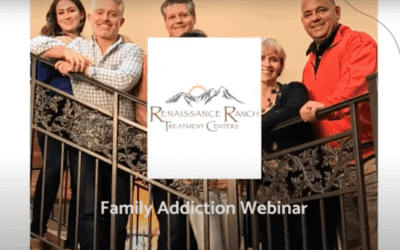Recovery Blog
Understanding REBT for a Lasting Recovery
What is REBT? REBT (Rational Emotive Behavior Therapy) is a short-term form of psychotherapy that better helps one understand the unhealthy thoughts and beliefs that contribute to their emotional...
Understanding EDMR for a Lasting Recovery
What is EDMR? EDMR (Eye Movement Desensitization and Reprocessing) is a psychotherapy that focuses on the healing of deep emotional distress caused by disturbing life experiences and trauma. EDMR...
It’s Okay to Not Be Okay
Are you familiar with the phrase “toxic positivity”? While there are many benefits to looking for a silver lining in difficult situations, it’s not always the best coping strategy. Being authentic...
Trigger Warnings: When to Listen to Your Gut
Before you made the decision to work on your sobriety, your decisions were most-likely motivated by your desire to acquire and abuse substances. In a way, it was simple because you just wanted to...
How Can You Better Support a Spouse Living Alcohol Free?
Your relationship is supposed to be a safe space for you and your spouse where you can find comfort and joy in one another. It’s important to support one another in any way you can, but there may be...
Family Addiction Education and Support Webinar
LDS PRINCIPLES AND THE 12 STEPS: STEP 12
On your journey to practice the 12 Steps, you have taken a great amount of personal inventory and done your best to right your wrongs and modify your behavior. Step 12 is focused on service, which...
LDS Principles and the 12 Steps: Step 10
Step 10 in the 12 step program is a continuation of steps 4, 8, and 9, as you continue to take personal inventory and promptly admit when you are wrong. The house cleaning that you’ve undertaken is...
LDS Principles and the 12 Steps: Step 9
Step 9 is one of the most cleansing portions of the 12 step program. In this step, you take action to free yourself from guilt and shame. This step allows you to gain confidence in your ability to...
LDS Principles and the 12-Steps: Step 8
In step 8, you make a list of all the people you have harmed and become willing to make amends to them all. The work that you did in step 4, taking a moral inventory of yourself, will be useful as...
LDS Principles and the 12-Steps: Step 7
Step 7 is a step that requires action after a period of thought and personal reflection, similar to step 3. In step 7, you must humbly ask God to remove your shortcomings. You prepared for this in...
LDS Principles and the 12-Steps: Step 6
Once you’ve taken a careful personal inventory and identified what your shortcomings are, it’s time to work at overcoming them. Before you can do this, make sure your mind and your heart are in the...










